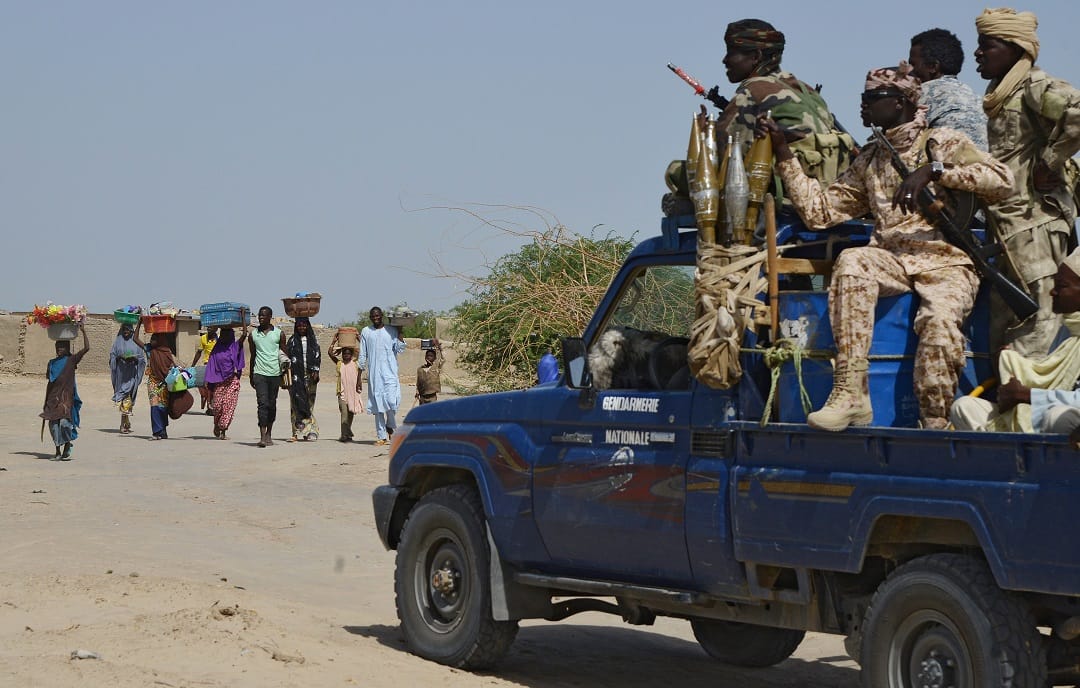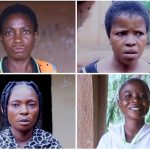Recently, Violet Kakyomya, Resident Coordinator of the United Nations System and Humanitarian Coordinator for Chad, said the security situation in the Lake Chad Region has worsened with an attendant increase in the number of internally displaced persons in the region.
The UN Coordinator stated that the agency needed $2.8 to address the humanitarian needs of the area and to assist the 8 million people affected by the conflict in the Lake Chad region.
But in a swift reaction, Babagana Zulum, the Borno State Governor, called to question the intention of Kakyoma, saying that there is a need to report happenings in the region fairly.
Zulum, who was speaking at a panel session on Security Trends And Dynamics at the 4th Lake Chad Basin ( Governors Forum meeting held in N’djamena, the capital of Chad, said, “It is not right at all because people have started earning their means of livelihood by themselves. You, the humanitarian actors, have contributed immensely. There are a lot of success stories … As far as I’m concerned, there is tremendous security, humanitarian improvement in the Northeast.”
Zulum vowed to withdraw his state from subsequent engagements if the situation is not fixed.
A history of conflict
The current conflict in the Lake Chad axis is tied to the history of the Boko Haram terrorist group, formed in 2002 by Muhammad Yusuf, a native of Jakusko, Yobe state.
A few years after the group’s formation, it launched attacks on police stations across Borno state, carting away weapons of police officers.
After Yusuf died in 2009 at the hands of men of the Nigerian Police Force, Abubakar Shekau became the leader of the group.
Shekau led the group to carry out attacks on religious houses and markets. The group claimed responsibility for some bomb blasts in Abuja and was responsible for the kidnap of the Chibok girls.
Until he died in the hands of ISWAP fighters, Shekau led the group to overrun military formations, grow its arsenal, claim territories, and push into Cameroon, Chad and Niger.
Between 2011 and 2022, Boko Haram killed thousands in the Northeast, with Borno being the worst hit.
And then came ISWAP
The Islamic State West Africa Province, or ISWAP, is a jihadist group that emerged in 2016 as a splinter faction of Boko Haram, and is considered to be one of the most dangerous terrorist organisations in the world.
ISWAP was formed following a dispute between Abubakar Shekau, the then leader of Boko Haram, and Abu Musab al-Barnawi, a son of Mohammed Yusuf. Shekau was seen as being too extreme and indiscriminate in his violence. In contrast, al-Barnawi was seen as more moderate and focused on establishing an Islamic state in the region.
In August 2016, the Islamic State of Iraq and the Levant or ISIL announced that it had accepted al-Barnawi as the leader of ISWAP. This was seen as a major coup for al-Barnawi, as it gave him the legitimacy and support of ISIL.
ISWAP has since carried out numerous attacks on civilians and military targets in the Lake Chad region. The group has also been accused of widespread human rights abuses, including torture, rape, and forced recruitment.
A conflict with a climate angle
The Lake Chad region, which spans Cameroon, Chad, Niger, and Nigeria, has at least 40 million people living there, most of which depend on the lake for their livelihood. They usually engage in fishing and farming for survival.
One of the main drivers of the crises in the area has been the shrinking of the lake due to a combination of factors, including climate change, overgrazing, and deforestation; this has led to a decline in fish stocks and agricultural productivity, which has had a devastating impact on the livelihoods of the millions of people who depend on it for survival.
Eventually, many among them had to flee the region to seek refuge in nearby cities.
All these factors make the victims prone to joining terrorist groups.
From then to now
When he was first elected into office in 2019, Zulum set up a ministry for the reconstruction, rehabilitation, and resettlement of people affected by conflicts. The ministry leads the effort to resettle the millions displaced by the conflicts.
Some of these efforts include resettling 11,000 households in six communities across the state, including Marte, Baga, Banki, Warabe, Kerenoa, and Ngurosoye. That came after he closed four IDP camps: Dalori 1, Dalori 2, Gubio Road, and Muna El-Badawi.
During his second swearing-in as governor, Zulum pledged to resettle more IDPs by returning them to their communities, building houses, and providing them with food.
And some of that effort has paid off. The International Organization for Migration or IOM confirmed that over nine hundred thousand IDPs returned to their homes as of November 2022.
“The gradual increase in return population is most evident in Borno State and is predominantly due to the camp closures within the urban areas of Maiduguri which led IDPs to relocate to their places of habitual residence within the state,” noted the UN agency.
The success of the return of IDPs is chiefly due to improved security in the area. Data from the Institute for Economics and Peace’s Global Terrorism Index showed that while Borno remains the battlefield for ISWAP and Boko Haram, the state experienced a 12% decline in terrorism-related deaths compared to 2021.
“Attacks in the state also decreased from 91 to 48 respectively, a decrease of 47%. ISWAP is now the most prominent group in Borno State, recording 40 incidents that resulted in 168 deaths in 2022, compared to Boko Haram’s six incidents and 63 deaths,” the report stated.
An officer of the Nigerian Army also confirmed the successes recorded so far, saying it is due to a sustained campaign by the military in collaboration with locales.
The officer, who did not want to be named, said, “Thousands of the JAS/ISWAP insurgents and their families had and are still surrendering due to pressure mounted by the military on them.”
Despite the progress, some returned IDPs said the government lied to them. Aisha Garba, a widow with three children, was one of the people who ran away from Banki in 2014. She had initially settled at the Dalori IDP camp, where she struggled to feed herself and her children.
At the camp, Garba and the other displaced persons depended on aid from non-profit organisations who visited the camp and, on other days, begged to feed.
In August 2022, Garba returned to Banki following the Borno State government’s closure of the IDP camp. Three other camps, Dalori 2, Gubio Road and Muna El-Badawi, were also closed due to what the state government attributed to the lack of funds.
But four months later, Garba left for Maiduguri, as she could no longer withstand the hardship at home.
“Even with normalcy restored in our village, things are so difficult that I had to leave again. I can’t survive there with intense hunger,” she told Prime Progress.
Garba said the government had failed to provide the feeding support it promised.
A better approach?
Abba Ali Yarima, a youth leader in the Lake Chad region, said the lack of local approaches to tackling the insurgency has made rehabilitation and reintegration less effective.
“There’s a disregard for culture, religion, and social norms towards the implementations of humanitarian and developmental projects in the region,” Yarima said. “Young people across the region who have vast knowledge of their communities aren’t taken into the decision-making process.”
Yarima added that the government needs to partner with security agencies and humanitarian agencies to strengthen the integration and rehabilitation process of the victims of the crisis.





